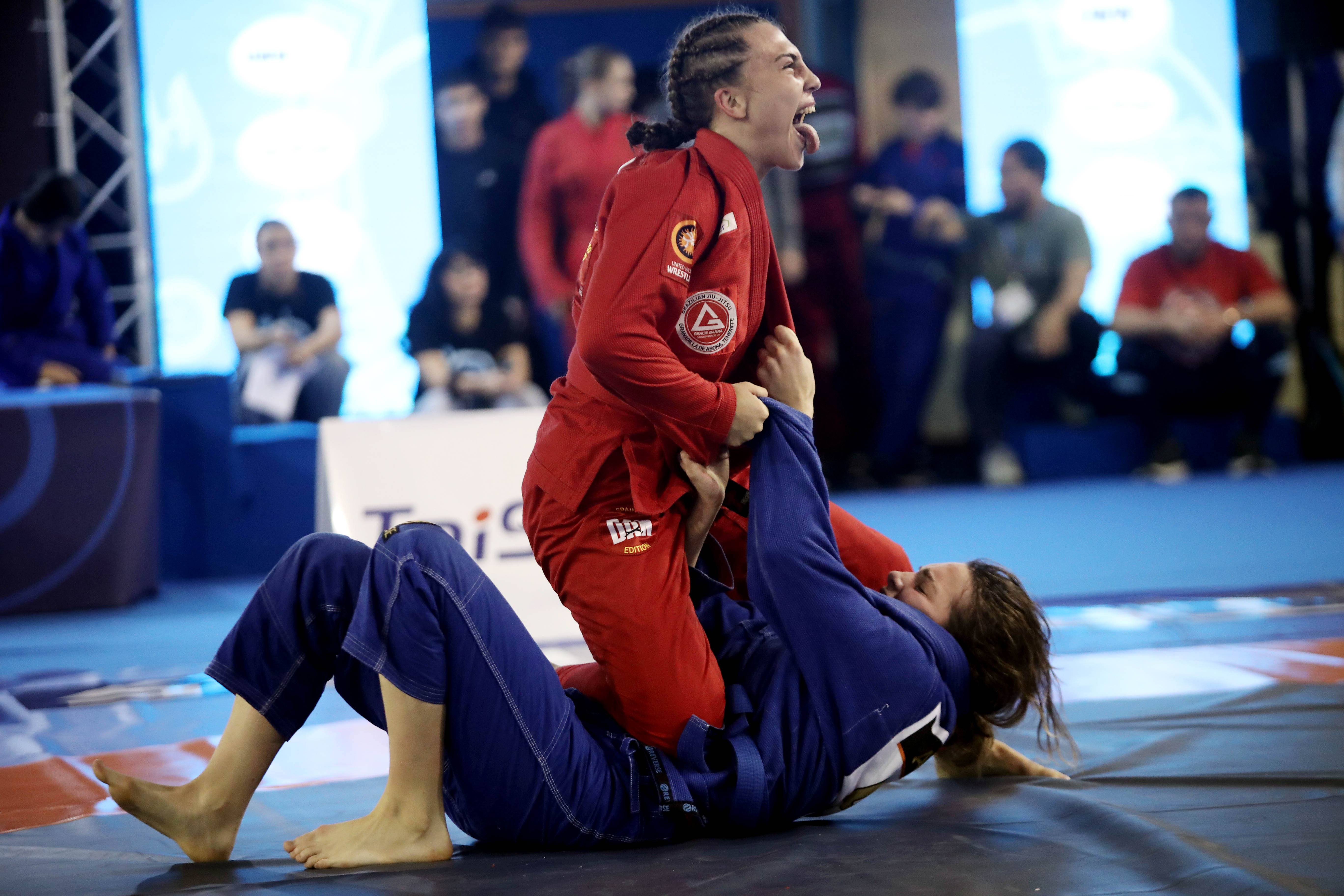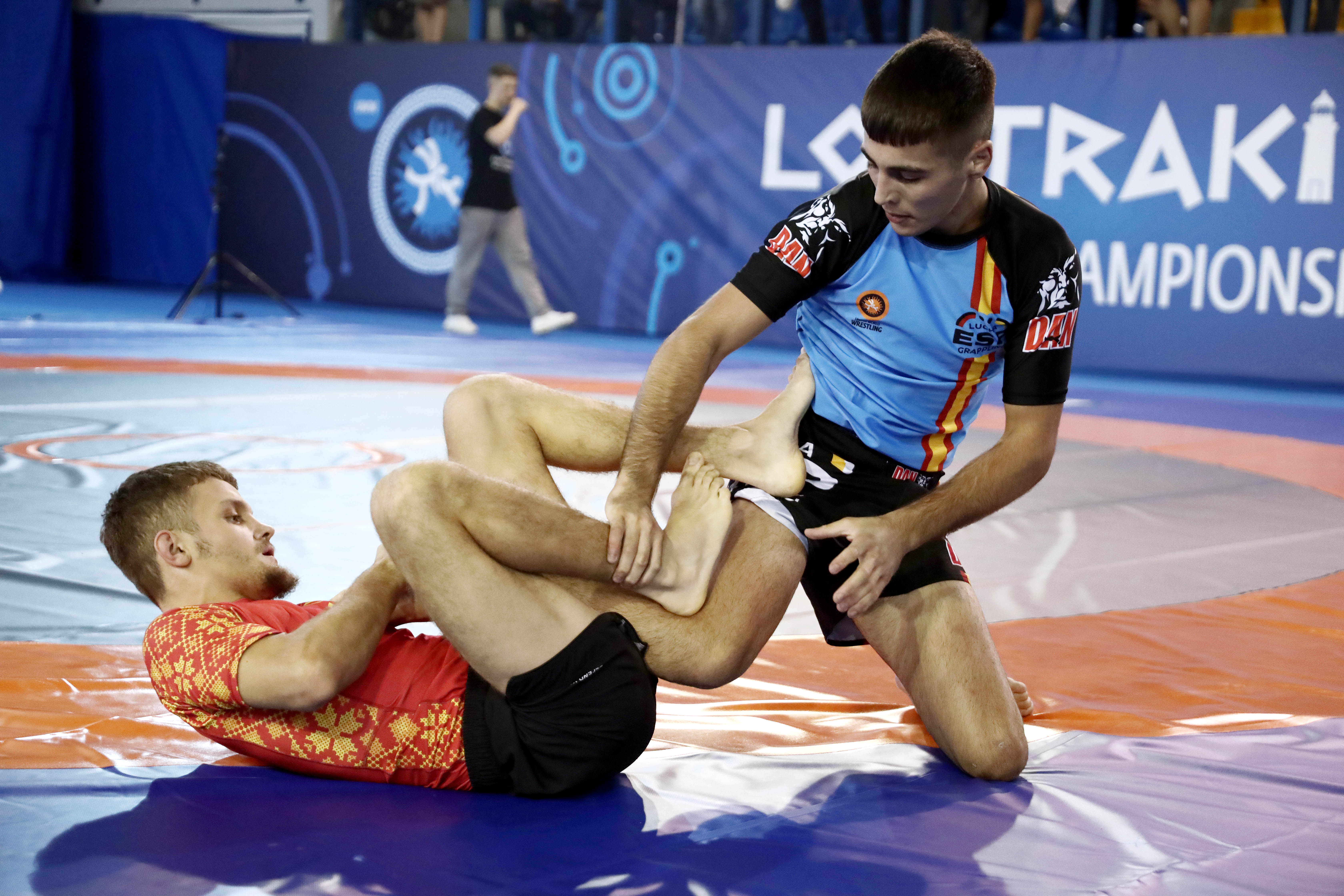Kyrgyzstan close out Islamic Solidarity Games with 3 golds
Saturday, August 13, 2022 - 23:37 By Ali Feizasa

KONYA, Turkey(August 13) -- Two Kyrgyzstan Greco-Roman stars affirmed their status as the top wrestlers in their respective weight classes by winning gold medals at the 5th Islamic Solidarity Games in Konya, Turkey.
The wrestling competition ended Saturday in Konya with Kyrgyzstan winning two Greco-Roman golds while Azerbaijan, Iran and Uzbekistan won one each. Women's wrestling also had two weight classes with Azerbaijan and Kyrgyzstan winning a gold medal each.
Overall, Iran and Azerbaijan won three gold medals each in both Greco-Roman and women's wrestling and emerged as the top two teams in both styles.
But Saturday belonged to Kyrgyzstan as two-time world silver medalist Zholman SHARSHENBEKOV (KGZ) rose to the top of the podium with a decisive 10-2 win over Murad MAMMADOV (AZE) in the final of 60kg.
Tokyo Olympic silver medalist Akzhol MAKHMUDOV (KGZ) wrestled world silver medalist Sanan SULEYMANOV (AZE) in the 77kg final which turned out to be a close battle. Suleymanov managed to score two points over Makhmudov but the Kyrgyzstan star got a total of four points after Suleymanov was put in par terre. That remained the winning sequence as he captured the gold medal with a score of 5-2.
The third gold of the night for Kyrgyzstan was captured by world champion Meerim ZHUMANAZAROVA (KGZ) at 68kg in women's wrestling.
Olympic bronze medalist Zhumanazarova was on a roll on Saturday and capped off her brilliant performance by pinning 2022 Asian champion Madina BAKBERGENOVA (KAZ) final.
In her previous bouts, Zhumanazarova won three bouts with technical superiority and one via fall. None of her opponents were able to score a single point on the Asian silver medalist.
Azerbaijan won two gold medals on Saturday with U23 world champion Hasrat JAFAROV (AZE) capturing the gold at 67kg and Zhala ALIYEVA (AZE) winning the 57kg weight class in women's wrestling.
At 67kg, European bronze medalist Jafarov wrestled Amantur ISMAILOV (KGZ) in the final and put a solid defensive performance to win 3-1. The difference was that Jafarov was able to score when Ismailov was put in par terre while the Kygyrzstan wrestler failed to do so.
For Aliyeva, the 57kg final turned out to be a high-scoring bout against former African champion Omolayo KOLAWOLE (NGR). A total of 20 points were scored in the gold medal bout but Aliyeva, a U23 European champion, won 14-6.
With that gold, Azerbaijan matched the tally of Kyrgyzstan as both countries won three gold medals each. Turkey won two gold medals in the home Games while Nigeria and Kazakhstan managed to win one each.
Iran finished with three Greco-Roman gold medals after world champion at 130kg Aliakbar YOUSEFI came out on top against Turkey's star wrestler Osman YILDIRIM (TUR).
Carrying a foot injury into the final, Yousefi was determined to step on the top of the podium and managed to hold off Yildirim, 3-2, in the gold medal bout.
The other gold medal went to Jalgasbay BERDIMURATOV (UZB) at 87kg and joined Rustam ASSAKALOV (UZB) as the country's Greco-Roman gold medalist.
In a battle of Asian champions, Berdimuratov faced three-time Asian gold medalist Ramin TAHERI (IRI) twice in the day and won both of the bouts.
The 2019 world bronze medalist defeated first wrestled Taheri in Round 5 of the Nordic bracket but managed to beat the Iranian with the barest of the margins -- 5-5.
The two managed to win their semifinals and wrestled again in the gold medal bout. But Berdimuratov made sure he doesn't run it as close as the Round 3 bout and stunned Taheri with an 11-2 superiority win in the 87kg weight class.
Iran and Azerbaijan finished the Greco-Roman event with three gold medals each while Kyrgyzstan and Uzbekistan shared the remaining 4 other golds by winning two each.
Day 4 Results
Greco-Roman
60kg
GOLD: Zholman SHARSHENBEKOV (KGZ) df. Murad MAMMADOV (AZE), 10-2
BRONZE: Ayhan KARAKUS (TUR) df. Yernar FIDAKHMETOV (KAZ), 6-2
BRONZE: Muhammadkodir YUSUPOV (UZB) df. Omid ARAMI (IRI), 8-1
67kg
GOLD: Hasrat JAFAROV (AZE) df. Amantur ISMAILOV (KGZ), 3-1
BRONZE: Mohammad REZAEI (IRI) df. Begmyrat NOBATOV (TKM), 11-0
BRONZE: Abror ATABAEV (UZB) df. Bilal El BAHJA (MAR), 9-0
77kg
GOLD: Akzhol MAKHMUDOV (KGZ) df. Sanan SULEYMANOV (AZE), 5-2
BRONZE: Amin KAVIANINEJAD (IRI) df. Lamjed MAAFI (TUN), 3-1
BRONZE: Furkan BAYRAK (TUR) df. Aram VARDANYAN (UZB), 9-0
87kg
GOLD: Jalgasbay BERDIMURATOV (UZB) df. Ramin TAHERI (IRI), 11-2
BRONZE: Atabek AZISBEKOV (KGZ) df. Mahammad AHMADIYEV (AZE), 3-2
130kg
GOLD: Aliakbar YOUSEFI (IRI) df. Osman YILDIRIM (TUR), 3-2
BRONZE: Sabah SHARIATI (AZE) df. Anton SAVENKO (KAZ), 5-0
Women's wrestling
57kg
GOLD: Zhala ALIYEVA (AZE) df. Omolayo KOLAWOLE (NGR), 14-6
BRONZE: Elvira KAMALOGLU (TUR) df. Laura ALMAGANBETOVA (KAZ), via fall
68kg
GOLD: MEERIM ZHUMANAZAROVA (KGZ) df. Madina BAKBERGENOVA (KAZ), via fall
BRONZE: Asli DEMIR (TUR) df. Oguljan EGEMBERDIYEVA (TKM), 10-0


 Angelica NIETO SANTOS (ESP) won the gold medal at 58kg. (Photo: United World Wrestling)
Angelica NIETO SANTOS (ESP) won the gold medal at 58kg. (Photo: United World Wrestling) Jose MARTIN SANCHEZ (ESP) became a double world champion. (Photo: United World Wrestling)
Jose MARTIN SANCHEZ (ESP) became a double world champion. (Photo: United World Wrestling)
Share your thoughts.
Comments